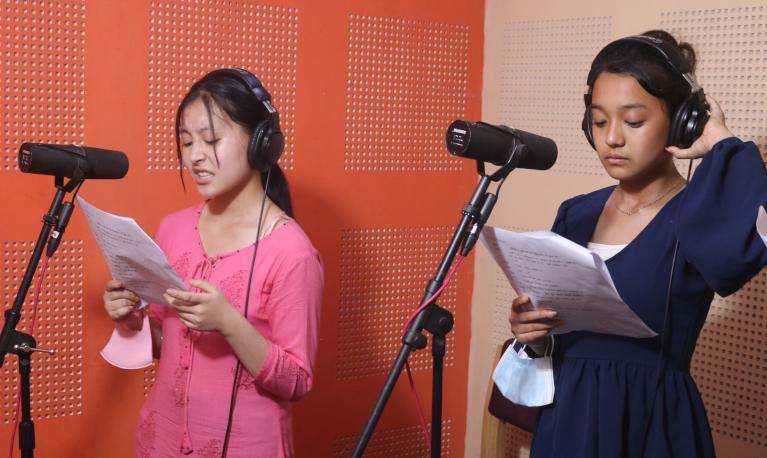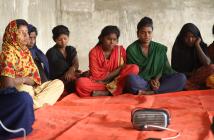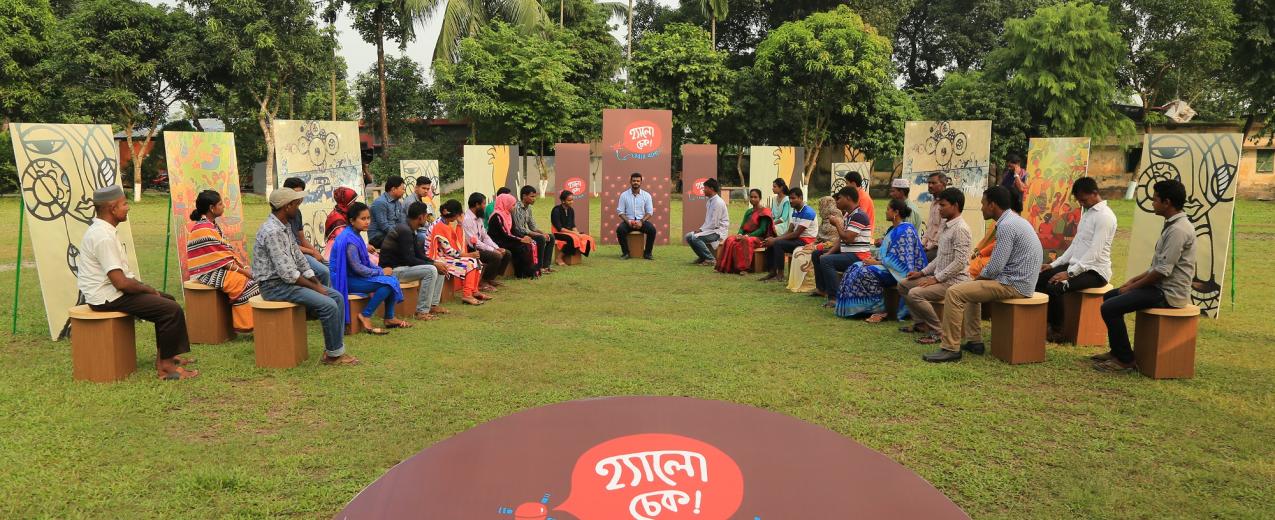
- Case study
- 29 October 2021
BBC Media Action, the BBC’s international development charity founded in 1999, uses creative communication and trusted media to help people across 24 different countries ‘have their say, understand their rights, responsibilities and each other, and take action to transform their own lives’. Gender equality and social inclusion run through all of BBC Media Action’s programmes, ranging from media development to humanitarian response. The work of BBC Media Action on gender equality aims to ‘challenge stigma, discrimination and negative social norms’ and ‘to ensure that people who are marginalised have a voice and are represented in a balanced and meaningful way in media, both on and off camera’. The key areas of focus are: gender-based violence, women’s economic empowerment, women’s inclusion in political and social leadership, and women’s access to justice and their rights to quality education and health.
Theory of change
BBC Media Action’s underlying belief is that ‘trusted information, stories and ideas’ can generate discussion, bridge divides, and inspire change in audiences.
Specific to gender norm change, BBC Media Action uses a role-model approach, showcasing both fictional characters and real people who act as positive deviants from the pre-existing gendered social norms. These role models can help to empower both women and men to drive transformative change within their own communities.
Methods
BBC Media Action’s programmes are centred around target audiences, with each programme grounded in local research and specific to the national, regional, or local context in which it takes place. In-country researchers use immersion trips to understand ‘how people live, what they believe, what issues affect them, what media engages them and how’, as well as the barriers that they face and their needs. The researchers then plan their programmes accordingly and in close partnership with the production teams, local media partners and communities. Media content—script writing, genre, distribution format—is determined and shaped by this initial, and crucial, audience research.
Emebet Wuhib-Mutungi, Senior Advisor for Heath and Gender, has emphasised that no standard approach is rolled out across different contexts and that BBC Media Action undertakes a multiplatform approach. While television and radio drama form the core of many of its projects on gender equality in Africa and South Asia, it is complemented by community outreach and the use of social media to generate greater discussion, reflection, and renegotiation. As Wuhib-Mutungi says: ‘Media alone is not enough’.
Evidence of change
Every Adolescent Girl Empowered and Resilient (EAGER), Sierra Leone
Wae Gyal Pikin Tinap (When the Girl Child Stands) is a weekly radio discussion that has been produced by BBC Media Action as part of the Every Adolescent Girl Empowered and Resilient (EAGER) project in Sierra Leone since 2020. This programme aims to ‘challenge negative attitudes and practices that prevent adolescent girls from accessing, or remaining in, education, training or employment’. Guest speakers share their experiences on various topics with a firm focus on providing listeners with solutions and ideas. This project also includes training and support for 18 local radio stations to help them produce their own versions of Wae Gyal Pikin Tinap and stimulate community discussion.
The programme’s female presenter and its presentation of relatable girls have resonated with many listeners, as confirmed by BBC Media Action’s evaluation surveys. ‘Some parents said that they have started to engage their adolescent daughters in discussions, particularly in relation to education and skills training’ and ‘a number of adolescent girls said that listening to the programme has helped them build their confidence and encouraged them to talk more openly with their parents’. That being said, there is still progress to be made on some themes. Puberty, for example, is still considered a taboo topic and too ‘sensitive’ for discussions between parents and their daughters.
‘Hello I Am’ was a multicomponent programme to tackle child marriage, teenage pregnancy, and school drop-out in Bangladesh, running from 2017 to 2020. To support this programme, BBC Media Action produced the ‘Hello Check!’ television series: ‘The show included real-life stories, celebrity guests, and discussions about gender equality, sexual harassment, school dropout, early marriage and pregnancy. In 2018, the Hello Check! TV show reached 7.24 million people aged 15+’. BBC Media Action’s accompanying radio programme, a half-hour live show broadcast nationwide on Dhaka FM, reached thousands of listeners each week, with more than 3,000 text messages received for each programme in 2017–2018.
While the television and radios broadcasts were a great success, BBC Media Action ultimately found that it was community screenings in the rural and semi-urban areas across the six project target ‘upazilas’ that really engaged adolescents and parents, encouraging them to think and talk differently about child marriage and the role of girls within their society. Quantitative surveys and in-depth interviews found that these ‘screenings created space and provided inspiration for discussions about child marriage to happen within families and within the wider community’.
A quantitative survey, for example, showed that ‘adolescents’ confidence to discuss and influence their parents’ decisions increased after the screening, although girls remain less confident’. Girls’ average level of confidence increased from 3.5 to 4.2 on a scale of 5, with 5 being the highest level of confidence, while increasing from 4.4 to 4.8 for adolescent boys.
Similarly, fathers became more open to discussion, with their average score increasing from 3 to 4.3. Indeed, the greatest shift in views was seen among fathers and adolescent boys: ‘when asked about the statement ‘A girl should resist being married before finishing her studies even if her family is poor’, the average score for agreement with this statement among fathers increased from 4 to 4.6. Fathers also reported being more influenced than mothers and girls by videos about female entrepreneurs and girls fighting to continue their education’. Wuhib-Mutungi notes that while more research is needed on why exactly men and boys experience the largest shift in their views, this may be the result of an influx of new knowledge that is new to them while may may not be new to mothers and girls.
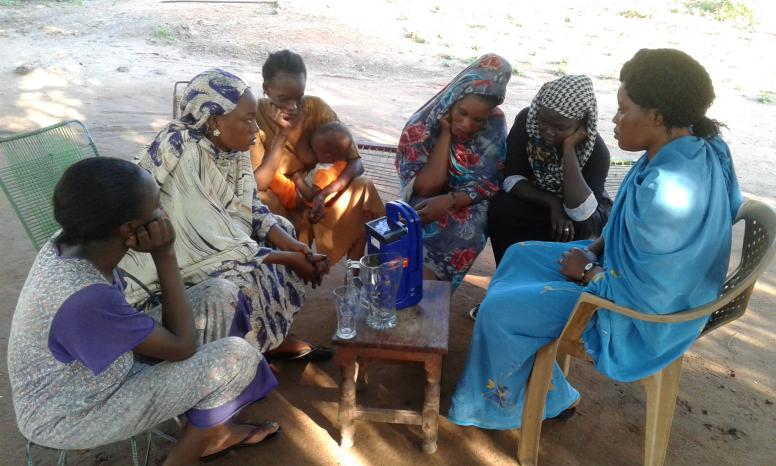
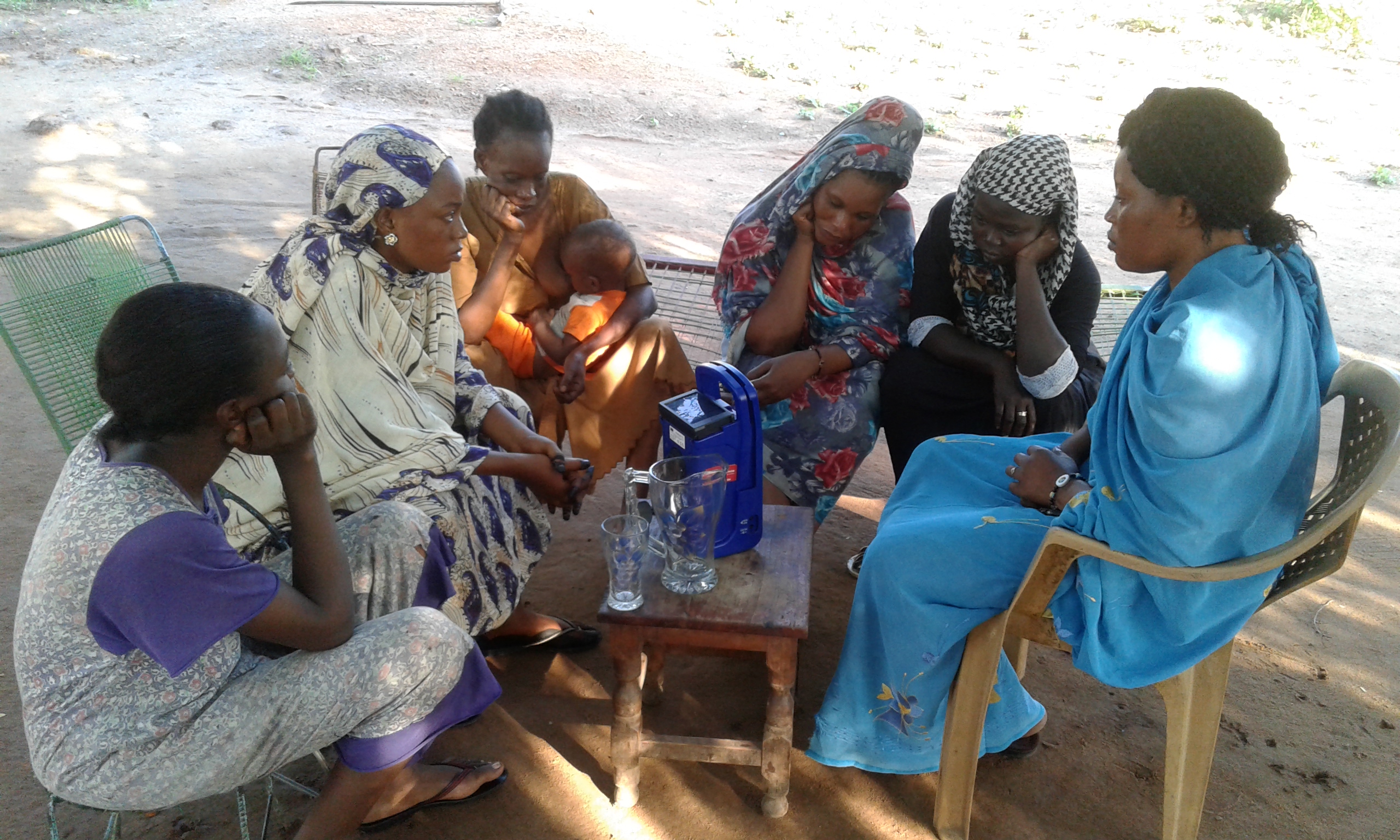
‘Life in Lulu’, a 15-minute radio drama that aired for six seasons from December 2017 to November 2019, aimed to end gender-based violence in communities in South Sudan, a country still in the midst of ongoing ethnic tension and conflict. It followed the fictional village of Lulu and aimed to show ‘how disputes can be resolved peacefully without resorting to violence and included storylines challenging traditional power dynamics between men and women, role-modelling the importance of involving women in decision-making processes and highlighting the negative consequences of violence, including gender-based violence’.
It was broadcast in three languages—Dinka, Nuer, and simple Arabic—on 28 radio stations across 10 states. Each broadcast was followed by a live 15-minute call-in, and community listening clubs complemented the broadcast by stimulating audience participation and community engagement.
Evaluation research found that the programme reached around 831,000 people (26% of the adult population or 46% of those with radio access) in the five states surveyed, but women were less likely than men to listen to the drama because of their more limited access to radios. Research by BBC Media Action indicates that men act as ‘gatekeepers of information’, which ‘ensures that men are more likely to have access to radio than women and have more control over what a family listens to on it, including Life in Lulu’. As such, programmes to change gender norms could target not only women, but also men.
Ultimately, BBC Media Action found that while both men and women were emotionally engaged with the programme and that is changed their views, beliefs, and opinions, only men were empowered to take action.
‘Entrenched norms about women’s role in community decision-making processes prevent female listeners from taking action There is evidence that highly engaged female listeners feel more confident in their abilities to use non-violent ways to resolve disputes. But male listeners are more likely to have taken action after listening, with 67% of highly engaged male listeners saying they had taken action compared to 52% of highly engaged female listeners’.
Ultimately, while the show challenged gender norms that limit women to the domestic and modelled ways in which women and men could speak out against gender-based violence and become agents of change. However, research revealed that gender norms are ‘sticky’, particularly in times of conflict, and that more work is needed to transform women’s status at the local level.
Looking to the future
Media is a fast-moving environment, and digital media usage is increasing worldwide. However, the typical users of social media platforms are young people, in particular young, urban men. While BBC Media Action has some ‘digital-first’ programmes, the digital sphere still plays a supporting or secondary role to broadcast media programming.
Wuhib-Mutungi argues that content for social and digital media needs to be adapted to the reality of its audience, given that young, urban men are not, at present, the primary target audience for much of BBC Media Action’s gender equality programming. In Bangladesh, for example, short clips of girls playing cricket worked well on social media platforms, but BBC Media Action was not able to address ‘deeper’ or more sensitive topics because of the short-term nature of social media engagement. Information has often been limited to short inspiring videos or content that guides young people toward new information or services. Wuhib-Mutungi emphasises, therefore, the continued centrality of broadcast media in many of the countries in which BBC Media Action works and its permanence in our global media landscape.
- Tags:
- Broadcast media, Media
- Countries / Regions:
- Global
More case studies
Interview
15 December 2021
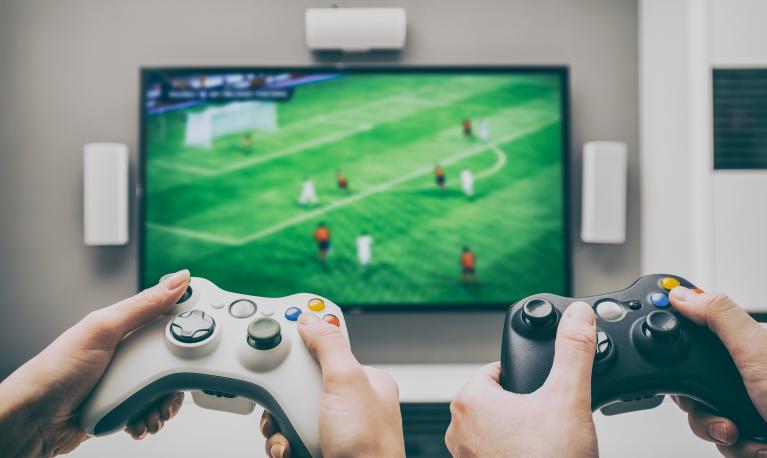
Interview
6 December 2021
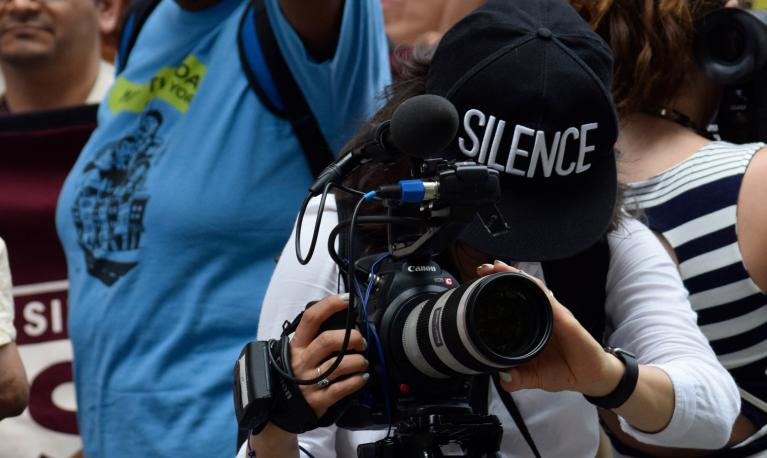
Case study
1 November 2021
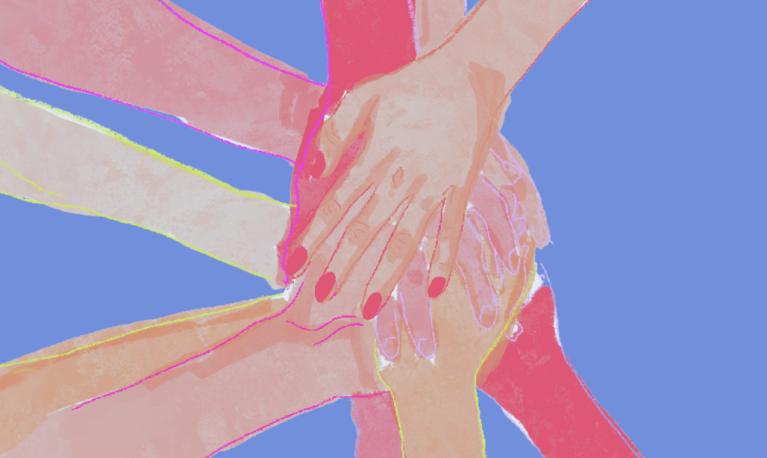
Case study
1 November 2021
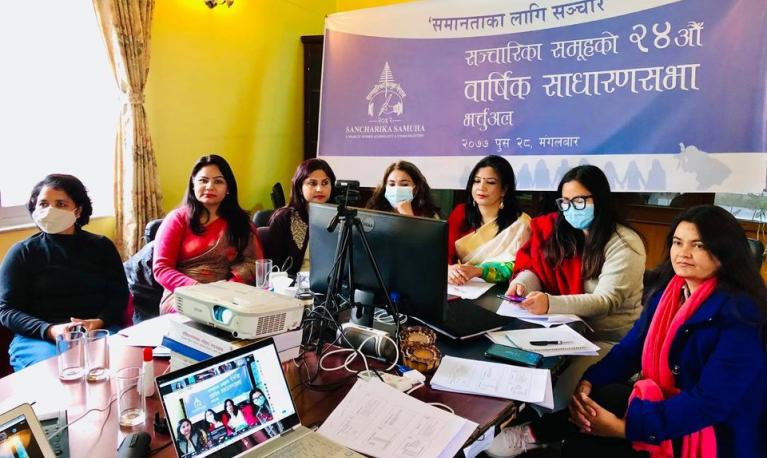
Case study
29 October 2021

Case study
29 October 2021
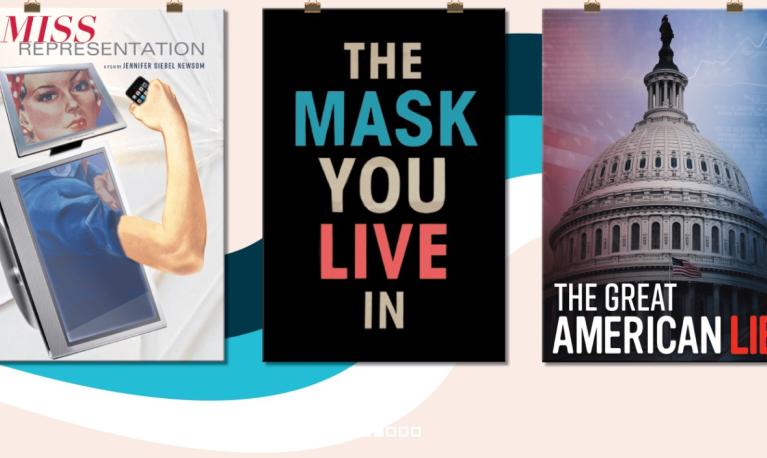
Case study
29 October 2021
